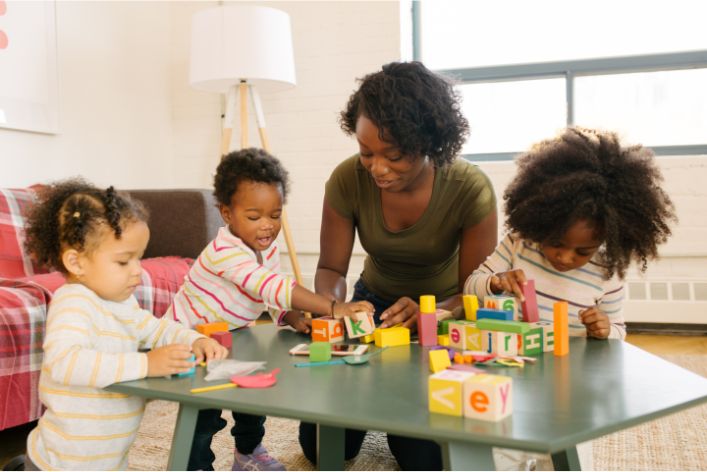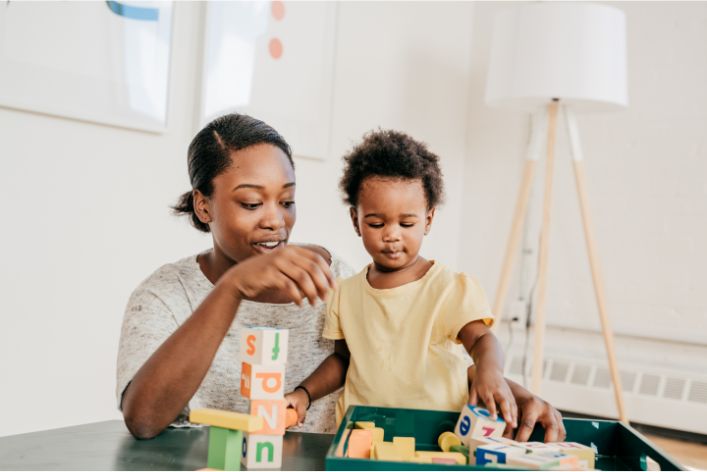Introduction
Creativity plays a vital role in education and is an essential skill for the future. It enables individuals to think outside the box, come up with innovative solutions and adapt to changing circumstances.
Creativity involves using one’s imagination, having a unique perspective, and being able to express oneself in a way that others can understand.
It is not limited to the arts but can be applied across all areas of life including science, technology, and business.
Parents play an important role in cultivating creativity in their children from a young age.
This involves providing an environment that stimulates creative thinking, encouraging curiosity, and allowing their children to explore different ideas and experiences.
It also involves letting go of traditional expectations and allowing children to express themselves in their own unique way.
By nurturing creativity in children, parents can help prepare them for a future that demands innovative solutions to complex problems.
In essence, creativity is not just a nice-to-have skill, but an essential one that is fundamental to success in the 21st century. Parents must recognize this and take a proactive role in cultivating this skill in their children.
The Nigerian Education System
Overview of the Nigerian education system
The Nigerian education system is decentralized and divided into three levels: primary, secondary, and tertiary. Primary education spans six years, secondary education spans six years, and tertiary education spans at least four years.
Challenges Facing the Nigerian education system
The Nigerian education system is facing a myriad of challenges that are impeding its growth and development. Some of these challenges include inadequate funding, poor infrastructure, inadequate teacher training, and outdated curricula.
Inadequate Funding
One of the major challenges facing the Nigerian education system is inadequate funding. The government’s allocation to education is insufficient to cater to the needs of the system, resulting in poorly equipped schools and underpaid teachers.
Poor Infrastructure
Another challenge facing the Nigerian education system is poor infrastructure. Many schools across the country lack basic amenities such as running water, electricity, and adequate classroom space. This has a negative impact on the quality of education being delivered.
Inadequate Teacher Training
Most teachers in Nigeria have inadequate training, and this has a direct impact on the quality of education being delivered.
Many of them lack the necessary pedagogical skills to properly teach students, resulting in poor learning outcomes.
Outdated Curricula
The Nigerian education system possesses an outdated curriculum that fails to address the demands of the global marketplace.
Parenting Made Just for You
Get personalized Parenting Solutions tailored to your child’s needs. Transform your parenting journey with expert guidance in 1-3 days.
Get StartedFurthermore, the curriculum lacks customization to suit the specific requirements of Nigerian society, leading to graduates who struggle to compete globally.
To overcome these challenges, parents can play a crucial role in cultivating creativity in their children. Parents can encourage their children to think outside the box and explore their creative side.
They can also provide opportunities for their children to participate in creative activities such as music, dance, and art.
Parents can also work with schools to ensure that the curricula being used are up-to-date and cater to the needs of the global market.
They can advocate for increased funding for education and improved infrastructure in schools.
Basically, the Nigerian education system is facing significant challenges that are impeding its growth and development.
However, parents can play a crucial role in cultivating creativity in their children and advocating for improvements in the education system.
With their support, Nigerian education can become more effective and responsive to the needs of the society.
Read: Overcoming Hurdles: A Guide to Special Education in Nigeria
The Role of Parents
The role of parents in Nigerian education cannot be overemphasized. As stakeholders in their children’s education, parents have a significant influence on their academic and personal development.
One of the areas that parents play a critical role in is cultivating creativity in their children.
Cultivating Creativity in Children
Creativity is an essential skill that helps children to develop problem-solving abilities, critical thinking, and innovation.
Therefore, parents should encourage their children to be creative by providing them with opportunities to explore their imaginations and express themselves freely.
One way to cultivate creativity in children is to allow them to engage in artistic expressions like painting, drawing, music, and storytelling.
Unveil the Perfect Name that Tells Your Family's Story
Let us help you find a name that embodies your family's values, traditions, and dreams. Our personalized consultation weaves cultural insights to create a name that's uniquely yours.
Get StartedThese activities help children to develop their imaginations, express their emotions and ideas, and improve their communication skills.
Encouraging Creative Expression
Parents can also encourage their children’s creative expression by providing them with an environment that fosters creativity.
Achieve this by establishing a dedicated space at home where children can explore interests and hobbies. Provide them with essential materials and tools, while offering support throughout their endeavors.
Parents should also avoid stifling their children’s creativity by setting too many rules and restrictions.
Instead, they should allow their children the freedom to explore their creativity, even if it means making a mess or breaking some rules.
Nurturing a Creative Environment
To nurture a creative environment, parents should also model creativity themselves.
They can do this by engaging in creative activities like DIY projects, gardening, and cooking, and involving their children in these activities. This will encourage their children to develop an interest in creative pursuits.
Parents can also provide their children with exposure to different cultural experiences, such as visiting museums, cultural events, and festivals.
This exposure will help children to develop a broader understanding of the world and inspire creativity.
Building a Partnership with Schools
Parents should also build a partnership with their children’s schools to promote creativity in education. This partnership can be achieved by attending school events, volunteering, and participating in school committees.
Parents can also advocate for the inclusion of creative programs and activities in their children’s education, such as art and music classes, drama clubs, and poetry slams.
This will help to foster a love of creativity in children and encourage them to embrace their creative talents.
In review, parents play a crucial role in cultivating creativity in their children.
By encouraging creative expression, nurturing a creative environment, and building partnerships with schools, parents can help their children develop essential skills that will prepare them for success in their academic and personal lives.
Read: The Nigerian Education Landscape: A Parent’s Roadmap

Tips for Cultivating Creativity
Creativity is a crucial aspect of a child’s development, and parents play a significant role in cultivating it.
By providing opportunities for exploration, experimentation, and imaginative thinking, parents can help their children develop the skills they need to become creative thinkers.
Here are some tips for parents who want to foster creativity in their children:
Engage in Open-Ended Activities with your Child
Open-ended activities are those that have no predetermined outcome, allowing children to explore and create on their own. Examples include painting, drawing, building with blocks or Legos, and playing with clay or playdough.
When engaging in these activities with your child, avoid giving too many instructions or corrections. Let them explore their own ideas and make their own decisions. This will help them develop their imaginations and creativity.
Encourage Curiosity and Exploration
Children are naturally curious and eager to learn about the world around them. Parents can foster this curiosity by encouraging exploration and asking open-ended questions.
For instance, if your child sees an animal outside, rather than telling them what it is, ask them questions about it. What color is it? What does it eat? Where does it live?
This will encourage them to think creatively and critically, and help them develop their own ideas and theories about the world.
Allow for Free Play
Free play is unstructured playtime that allows children to explore and create on their own, without set rules or guidelines.
This could be as simple as allowing your child to play with toys or puzzles, or as complex as setting up a pretend play area with costumes and props.
By allowing your child to play freely, you are giving them the opportunity to make their own decisions and pursue their own interests.
This can help them develop their imaginations and problem-solving skills, as well as their ability to think creatively.
Provide Tools for Creative Expression
In order to be creative, children need access to tools and materials that allow them to express themselves in different ways.
This could include art supplies like paints, markers, and paper, as well as construction materials like blocks, Legos, or recycled materials.
By providing a variety of materials, you are giving your child the opportunity to experiment and explore different ways of creating and expressing themselves.
Foster a Growth Mindset
A growth mindset is the belief that skills and abilities can be developed through dedication and hard work. By fostering a growth mindset in your child, you are encouraging them to take risks, try new things, and persevere through challenges.
This can help them develop the confidence and resilience they need to be creative thinkers.
To encourage a growth mindset, praise your child for their effort and progress, rather than just their achievements. Encourage them to try new things, and emphasize the importance of learning from mistakes.
To sum it up, creativity is a crucial component of a child’s development, and parents play an important role in cultivating it.
By engaging in open-ended activities, encouraging curiosity and exploration, allowing for free play, providing tools for creative expression, and fostering a growth mindset, parents can help their children develop the skills they need to become creative thinkers.
By investing in their creativity, parents can help their children thrive both now and in the future.
Read: Educating Parents: Navigating School Challenges in Nigeria
Conclusion
It is undeniable that cultivating creativity is crucial in education. It prepares children for future success, enabling them to innovate and adapt in a constantly evolving world.
Parents play a significant role in nurturing creativity in their children. They can provide a supportive environment that encourages exploration, experimentation, and imagination.
Parents can also expose their children to a variety of experiences and challenges, allowing them to develop problem-solving skills and to think outside the box.
Research has shown that creativity is a key trait in successful individuals. It enables them to approach challenges with originality and to come up with innovative solutions.
Creative individuals also tend to have better communication skills, higher emotional intelligence, and greater resilience.
Most importantly, creativity should be encouraged and valued in education. Parents hold the responsibility of actively nurturing their children’s creativity, acknowledging its significance for future achievements.
Ultimately, parents must provide support and resources to facilitate their children’s complete creative development.




